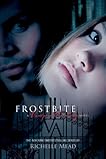It is my honor and privilege to feature a brief interview with Dr. Coppola. Please pull up a chair and the beverage of your choice and learn more about today's featured author. My thanks go out to Dr. Coppola for taking a few minute out of your busy day to chat with my readers and myself!!
Who are some of your heroes – professional, literary or otherwise? What was it about people like Ronald Reagan that inspired you? What was it about people like C. Everett Koop?
One of my heroes is actually featured in the book, and I was lucky enough to get him to write the foreword to Coppola: A Surgeon in Iraq. He is Guy Raz, correspondent for NPR and weekend host of All Things Considered. I see Guy as a hero because as a journalist he is keeping freedom of speech alive. His job takes him all over the world, including places where he is in danger. To date, over a hundred journalists have been killed in Iraq.
I was inspired by Ronald Reagan because I felt like his message to Americans was very personally directed to me as I was starting college. He let us know that it was good to be proud of America, and that we had strength if we worked together. I felt like my contribution could be important.
Dr. C. Everett Koop is the reason I am a pediatric surgeon. When I was in high school, he was nominated to be surgeon general. At that time, I was interested in becoming either a pediatrician or a surgeon; after learning about the life of Dr. Koop, I realized that the specialty of pediatric surgery existed. Dr. Koop is also an amazing example of what can be achieved by sticking to principles, as when he persisted in teaching America about the risks of the AIDS epidemic, even while President Reagan attempted to downplay it.
Can you take us through your first night on call? Can you tell us the story you describe in the book of the Iraqi policeman who came to see you? Describe your reaction to seeing this patient.
My first night on call in the combat support hospital, I worked with Trevor, one of the departing surgeons who had been at it for five months. We received a policeman who had been shot by an insurgent while he and his classmates were graduating from police training. He had received a high-energy rifle wound to the abdomen. It was far worse than the gunshot wounds I had seen in civilian trauma centers. It was a sign that my surgical practice in Iraq was going to be on a different level. I write in the book, Coppola: A Pediatric Surgeon in Iraq:
“‘I think it’s the vena cava,’ I tell Trevor. We peek again, and sure enough the bullet has blown a hole in the body’s largest vein. The bullet has come to rest somewhere behind the cava in the thoracic spine and I can feel prickly shards of shattered bone. The duodenum and right kidney seem pretty torn up, too. I count the layers of organs that have been injured: liver, colon, small intestine, pancreas, duodenum, vena cava, spine. I run a quick mental tally and realize I am treating the five worst gunshot injuries I have seen in my life.”
How did the injuries you saw in children differ from those you witnessed in adults?
For the most part, children were receiving the same injuries as adults. The most common cause of injury was blast injury, with the accompanying shrapnel and burns. However, since children’s bodies are a little different, the shrapnel affected their tissue in a different pattern. Most of the IED’s, car bombings, and suicide bombings would start from a pretty low angle, blasting upward. Since children are shorter, they were more likely to have head and neck injuries than adults. Many of these head injuries were lethal but we could save some. In addition, the secondary effects of the war created another common injury. With power so scarce, many families would use open flame for heating and cooking in their homes. We frequently received children who had been burned in the home from these cooking fires.
The cover of the book refers to a story you tell in the book of a child who arrives at the gates of the base with a piece of paper bearing your name. Can you describe that story?
In addition to treating traumatically injured children, I also ended up caring for some children with non-traumatic injuries. The war disrupted much of the medical infrastructure of Iraq and people had nowhere else to go.
One day when I was on duty, the gate guard called and told me that a family had shown up at the gate carrying a child, and clutching a piece of paper that read “Coppola, doctor for children” on it. They asked me what they should do and I said, “I guess you better send him in. The child had a hernia, and we were able to fix it at the hospital without too much difficulty. It turns out that the family came from a small village, and had heard that there was a doctor who could help children on the military base. A few weeks prior I had helped the nephew of an Iraqi interpreter with an operation to repair prolapsed of the rectum, and he had passed the word along. The boy’s family returned home and word spread that there was an American pediatric surgeon in Balad.
How did you speak to Iraqi families, if your Arabic was limited? Did this language barrier ever interfere with your ability to be clear with them?
My Arabic was very limited. My native language is English, but in addition I can speak Spanish well and a smattering of Italian and French. Before deploying, I did my best to learn Arabic using audio CDs, but I didn’t have a good grounding to get very far on my own. I learned a few useful phrases like “good,” “bad,” and “surgery tomorrow,” which covered most of what I had to communicate to patients. However, to figure out what was going on with a new patient, it was essential to understand them, and for that I am very grateful to the interpreters who worked at the hospital. In 2005, during my first deployment, the interpreters were all bilingual, native Iraqis who were highly educated and motivated. Working with us meant risking their lives because they were frequently targeted by the insurgents as collaborators. They helped me translate some very difficult conversations, even so far as telling parents their children had died.
I describe in the book one time when even having a skilled interpreter wasn’t enough to make myself well understood. One boy came to us for treatment for an abnormality of his penis. During my evaluation I determined that he was actually a female hermaphrodite. Even if we had all been speaking the same language that would have been a murky conversation. With the help of the interpreter, we muddled through as best we could.
In addition to your writing, you’ve taken thousands of pictures of the base as well as video footage. Do you feel that you were a witness for this war? Was there a conscious decision to want to document this experience for the sake of history / posterity?
I definitely made a conscious effort to document my experience in images. There were many purposes to this, and I’m not sure that I even understand all the reasons why I felt it necessary to preserve what I was seeing. At times, things were so horrific and absurd that taking a picture was a way of attempting to understand what I was seeing, or at least storing it away to puzzle out the meaning at a later time. Also, I felt sorely unable to completely convey what I was witnessing in words, so pictures were an attempt to explain it to the caring, concerned friends and family at home. Lastly, just as you say, I felt like I was a witness. I felt like the events going on around me were far bigger and more important than I was as an individual, but if someone didn’t record the accounts of these pained and brave lives, it would be as if it never happened. I felt that one purpose I could serve was to be a vessel to transmit their stories to the rest of the world.























